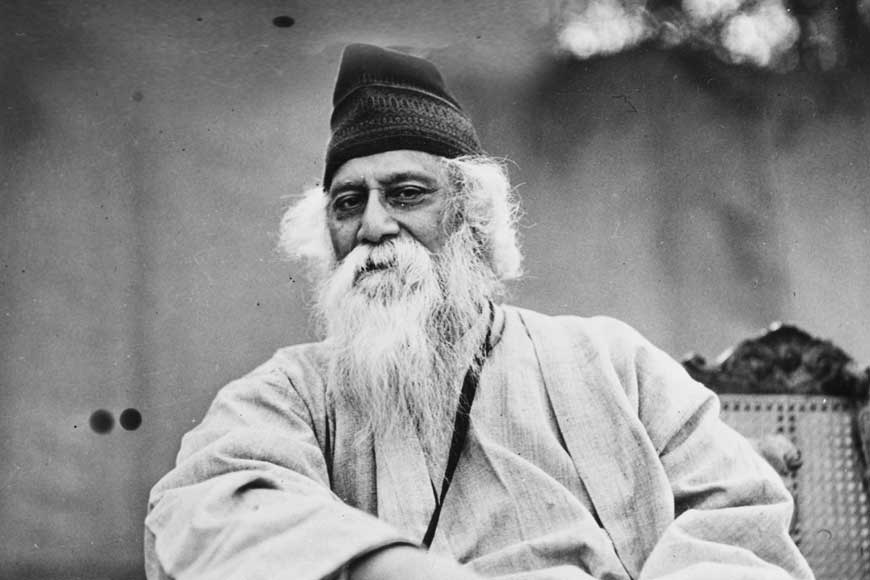What did Tagore write after his dear son died in a cholera epidemic?

Beyond the bounds of life and death
There you stand, O my friend!
On World Poetry Day, I cannot think of anyone better than Rabindranath Tagore, to give us solace amidst the mayhem and fear of the new strain of a virus that is killing one human being every minute across the world. When pain, death and economic uncertainty stares bare at your face, you just know one thing is to be done, read poems and that too poems of Tagore, the man who won several deaths through his words, through his pen. It is often said Tagore’s experience with the death of his beloved ones, from mother, to sister-in-law or his favourite boudi, from his wife, to daughters, and even his son and grandson, had left a deep impact on the very essence of his poetry, their subject matter and how he envisaged life and showcased his pain, his struggles to face the cruel truth.
Grief had struck him very early in life when he lost his mother at a young age. Though he was primarily raised by servants as in those days that was the usual practice in big aristocratic households, yet Tagore was very close to his mother and his ever yearning for her, the distance that created pain was reflected in Jibansmriti, that he wrote at the age of 50. In a section Tagore writes:
“I know not who paints the pictures on memory’s canvas; but whoever he may be, he is painting pictures. He is there with his brush to make a faithful copy of all that is happening. He takes in and leaves out according to his taste. He makes many a big thing small and small thing big. He has no compunction in putting into the background that which was to the fore or bringing to the front that which was behind. In short, he is painting pictures, and not writing history.”
Tagore always was in search of that greater force that he believed controlled the Universe. He went on in search of that same ‘Eternal Friend’ again every time death struck. At Kadambari Devi’s death, his beloved sister-in-law, who committed suicide, Tagore again goes back to poetry. He writes:
“Jibono Moroner Shimana Chadaye…Bondhu he aamaar royecho dadaye…”
Tagore’s tryst with death continued. In 1902, he lost both his wife and daughter, Renuka. His father passed away in January 1905, and in 1907, on the fifth death anniversary of his wife, his son Shamindranath died of cholera at the age of 11. Probably this was a death that had really shook the core of Tagore. A boy who died of the cholera epidemic. And probably the most beloved son, a son who was said to be equally talented as Rabindranath Tagore. He again took up his pen and wrote:
“When his last moment was about to come, I was sitting alone in the dark in an adjoining room, praying intently for his passing away to his next stage of existence in perfect peace and well-being. At a particular point of time, my mind seemed to float in a sky where there was neither darkness nor light, but a profound depth of calm, a boundless sea of consciousness without a ripple or murmur. I saw the vision of my son lying in the heart of the Infinite and I was about to cry to my friend, who was nursing the boy in the next room, that the child was safe, that he had found his liberation. I felt like a father who had sent his son across the sea, relieved to learn of his safe arrival and success in finding his place. I felt at once that the physical nearness of our dear ones to ourselves is not the final meaning of their protection. It is merely a means of satisfaction to our own selves and not necessarily the best that could be wished for them.”
And who could ever forget those poetic lines:
Aaj Jyotsna rate shobai gechhe boney,
Basanter ei matal shamiran e…
Lines he wrote while returning home after listening to Samindranath’s ill health. Another Spring has come in Bengal today, and on this World Poetry Day 2020, we are all homebound, failing to enjoy the first blush of Palash and Shimul bursting in all their glory. A Spring that brings again a whiff of death across the world! Let’s again read Tagore today to keep us calm!










